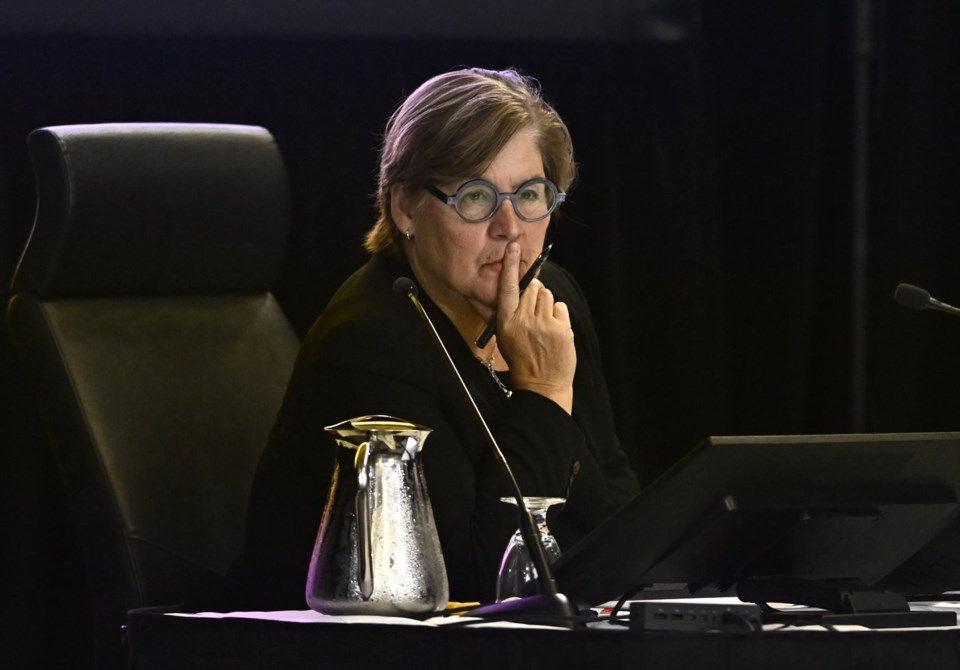OTTAWA — A newly released document shows federal cabinet ministers were warned in May 2022 that hostile states were targeting Canada's strategic interests, the integrity of Canadian institutions and democratic processes, and the ability of the public to exercise Charter-protected rights and freedoms.
The document is a summary of one of four memorandums to cabinet, generally considered closely held confidences, that were provided to a federal commission of inquiry into foreign interference as part of its terms of reference.
The inquiry said Monday that following extensive discussions, the government agreed to the public release of summaries of the memos. All four were entered into evidence after a commission hearing Monday.
The summary of the May 2022 memorandum to cabinet, known as an MC, says hostile threats were emanating from states including, China, Russia, Saudi Arabia and Iran.
"Though these threats were not described as new to Canada, the MC noted that Canada’s security and intelligence community had observed an increase in both volume and complexity of such threats in recent years," the summary says.
It affirmed that Canada had "tools and levers" to counter the dangers, but these tools required better co-ordination and, in some cases, modernization to address "an increasingly dynamic, complex threat environment."
The memorandum called for possible improvements to legislation to address foreign interference, including creation of a foreign agent registry, a recommendation the Liberals adopted. Bill C-70, which contains a suite of new measures including such a registry, received royal assent earlier this year.
The government also tabled summaries Monday of memorandums to cabinet from 2018, 2019 and 2021.
The 2018 memorandum laid the groundwork for conventions to safeguard general elections, including a protocol for responding to interference incidents and determining if, when, and how to communicate with Canadians about meddling in a campaign.
The October 2018 submission to ministers also called for the Canadian Security Intelligence Service to make "sustained investments" in its capacity to investigate, analyze and provide advice on foreign activity targeting Canada's democratic institutions. It said CSIS should raise awareness of threats to key stakeholders involved in the democratic process.
In addition, the memorandum said the RCMP should form a team dedicated to probing foreign interference activities.
The memorandums in question had been previously provided to David Johnston, who looked into foreign interference last year as the government's special rapporteur.
The commission of inquiry said Monday the government, in addition to consenting to the release of the summaries, has also twice expanded the commission's access to cabinet secrets.
The inquiry has been granted an extraordinary degree of access to both classified material and information subject to cabinet confidence, said commissioner Marie-Josée Hogue.
"This information will assist me in developing recommendations that will help to preserve the integrity of Canada's electoral processes and democratic institutions and enhance Canadians' trust and confidence in their democracy."
The commission's latest hearings are looking at the capacity of institutions to detect and counter foreign meddling.
The inquiry heard Monday from current and former employees of Privy Council Office secretariats dealing with security and intelligence matters and the assessment of various threats.
A November 2023 report tabled during the hearing said Canada's national security and intelligence governance structure was "not optimally or efficiently organized."
It said there was overlap in membership and mandates of committees composed of senior bureaucrats, as well as duplication of discussions across multiple committees.
The briefing report, prepared for the deputy national security and intelligence adviser, concluded there were too many meetings, with "not enough effect."
It noted inconsistent followup on items as well as spotty flow of information to lower levels, sowing confusion and "impeding work."
Nabih Eldebs, who oversees the security and intelligence secretariat's four branches, noted deputy ministers were expected to attend a "plethora of committees" on security issues.
"It makes for (deputy ministers) that are always in meetings and not engaging in other things," he told the inquiry.
Eldebs said he hoped a new structure would be finalized in coming weeks.
This report by The Canadian Press was first published Oct. 7, 2024.
Jim Bronskill, The Canadian Press



